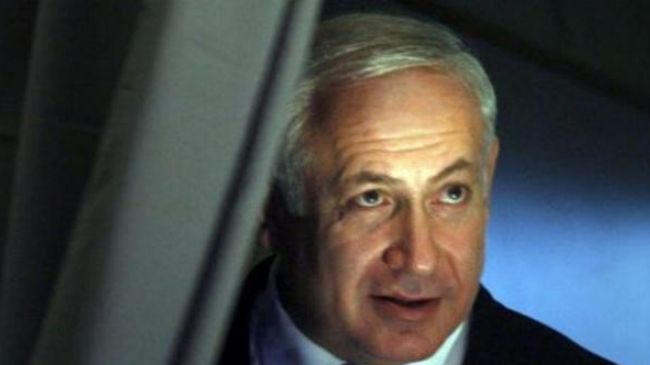Israel plunges deeper into isolation

Over recent months, the Zionist regime of Israel’s 65-years endeavors to win recognition with the international community seems to have faced a serious challenge.
In recent years, even some Arab countries have secretly established ties with this regime, but in early 2013, certain factors emerged to push some countries to downgrade or even sever their ties with the entity. Such conditions have further pushed Israel into isolation.
South African Foreign Minister Maite Emily Nkoana-Mashabane said recently her country plans to reduce its ties with Israel, adding that no South African official will travel to Israel as long as the conditions do not improve. This is just the tip of the iceberg and the latest position taking by Israel’s allies who once took pride in expanding their relations with the Zionist regime.
Even the United States, the main ally of Israel, has faced opposition from public opinion in continuing its assistance to Israel. Some US officials are even trying to show that they do not favor all Israeli behaviors. To that effect, the US State Department openly criticized the Israeli expansion of Jewish settlements in the occupied Palestinian territories. US Secretary of State John Kerry also acknowledged that Israel has been increasing pressure on the United States in a bid to sabotage the ongoing nuclear talks between Iran and six world powers.
At present, international observers are not alone in highlighting the growing isolation of Israel. Even senior Israeli officials have admitted to this fact. Israeli Minister of Military Affairs Moshe Ya’alon said the US-Russia agreement on Russia and Iran’s new nuclear approach has led to Israel’s isolation.
Zahafa Galoun, chairperson of the Meritz movement at the Israeli Knesset, criticized the ruling Likud party’s policies in an interview on Israeli radio, saying Israeli Prime Minister Benjamin Netanyahu’s policies have resulted in further isolation of the Zionist regime in the world.
The question here is to know which international developments have intensified the isolation of Israel. In response to this question, influential domestic, regional and global factors have to be studied.
On the domestic level, the Likud Party – led by Netanyahu – has managed to meet its economic and security obligations, eliciting angry reactions in the occupied lands.
The economic situation in this region is extremely poor and the Israeli economy is heavily dependent on donations offered by Jewish people worldwide. At the same time, the Likud Party instead of looking at the welfare of the people is only concerned about expanding its arsenals.
But the most important reason on the domestic level is the security issues which because of the continuation of the policy to expand settlements in occupied territories and a halt in talks always concern Israelis about the emergence of a third Intifada.
These domestic conditions, particularly the expansion of the illegal settlements which is considered the main obstacle to peace has brought the Israeli regime under severe criticism internationally as well as in the Middle East region.
But on the regional level, developments in Syria as well as issues pertaining to the Iranian nuclear issue are the main reasons for the isolation of the Zionist regime which since February 2011 has stopped at nothing, including financial and military support and even training militants fighting against President Bashar al-Assad, to destabilize Syria. At the same time, the Zionist lobby has done everything in its power to provoke the White House to start a new war against Syria.
But ultimately with Syria accepting the Russian proposal to bring its chemical sites under international control and the endorsement of the international community of the Syrian measure, the option of military action against Syria was taken off the table.
And Syria’s good cooperation with the international community in this regard improved Bashar Assad’s position in public opinion. This resulted in efforts by Israel to beat the drums of war being ignored.
Over the past decade, Israel – which had managed to convince the international community of its lies about Iran’s nuclear program not being peaceful which resulted in the adoption of sanctions by the US Congress and United Nations Security Council against the Islamic Republic – realized that all these efforts have failed after Hassan Rouhani was elected as Iran’s president and a new approach was adopted to interact with the international community.
One can point to Israel radio reporter Chico Menashe’s remarks in which he said Hassan Rouhani was the star of the UN General Assembly and highlighted the Iranian president’s brightness in his interview with CNN when he was asked to send a message in English, which was unique for an Iranian politician.
Menashe said Netanyahu’s isolation was a fact and that the Israeli prime minister was focusing all his attention on the issue of talks between Iran and the US. He noted that it was very difficult for the Israeli prime minister to convince the West to respect the red lines defined for Iran.
But on an international level, Israeli’s cooperation with regards to the phone-tapping scandal in Europe further destabilized the regime’s position among EU member states. The French Le Monde newspaper on October 26 reported that Israel had listened to millions of calls made by the French. The report written by the French paper in cooperation with US journalist Glenn Greenwald connected to former US contractor Edward Snowden, said that Israel has committed espionage.
According to the Daily Mail, Israeli spies tracked and listened to over 70 million conversations and text messages.
According to the Independent, five percent of Americans opposed Israeli with regards to the Middle East developments despite the majority of its media being run by Zionist lobbies.
In reality, the Likud Party has further isolated Israel in the international arena because the world is tired of war and is looking for peace and the warmongering action approaches of Israel are not welcomed by people, world leaders or international organizations.







